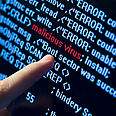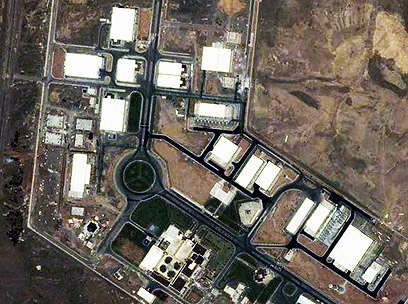
The reports of damage done by the virus Stuxnet to Iranian computers has provoked a sigh of relief by the West, which was happy with the reported delay of Tehran's nuclear program – but now it turns out that maybe there was no reason to rejoice: A new study published in the UK reveals that Iran's nuclear potential may actually have increased significantly following the penetration of the computer worm into the facilitiy in 2009-2010.
Researchers say the Stuxnet worm revealed weaknesses in the facility, which otherwise would not have been noticed. In fact, the production of the facility actually increased in the year following exposure of the penetration.
Related stories:
- Researchers: Stuxnet used against Iran in 2007
- Report: Feds up pressure on suspects in Stuxnet leak
- Iran says defeats cyber attack on industrial sites
The research showed that even during the period in which the West thought Iran's nuclear program was ‘under attack,’ the Iranians intensified their activities under a cloak of secrecy and began to enrich uranium to higher levels, following improvements to the activities of the centrifuges.

Natanz facility (Photo: AP)
Researchers who had examined data collected by the International Atomic Energy Agency (IAEA), found that since August 2010 the number of machines that operate Natanz facility were found to have increased. Iran's ability to install more machines “was not hindered” by the penetration of the worm, explained researcher Ivanka Barzashka to the British Telegraph. In fact, she said, “Iran's uranium-enrichment capacity increased and, consequently, so did its nuclear-weapons potential."
"Stuxnet was of net benefit to Iran if, indeed, its government wants to build a bomb or increase its nuclear-weapons potential," she added. "The malware – if it did in fact infiltrate Natanz – has made the Iranians more cautious about protecting their nuclear facilities."

The President of Iran at Natanz facility (Photo: AP)
Iran had previously acknowledged that it had experienced cyber attacks against strategic sites in the country, which led it to point its finger at the United States and especially Israel.
A senior Iranian intelligence source said last year that about 16,000 computers were effected by Stuxnet, but Western experts estimated that Iran's nuclear program engineers were able to neutralize and clear the virus from their computer system.
Meanwhile, the vice president of the IAEA, Herman Nackaerts, said that no progress was made in talks between the Agency and Iran regarding the nuclear program of the Islamic Republic.
Discussions were recently renewed in Vienna. "We had intensive talks, but we have not reached common ground. We will continue the dialogue, " said Nackaerts, noting that no date had been set for the next round of talks.
- Receive Ynetnews updates
directly to your desktop















